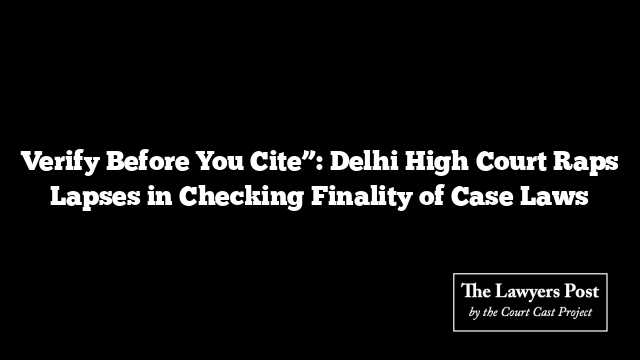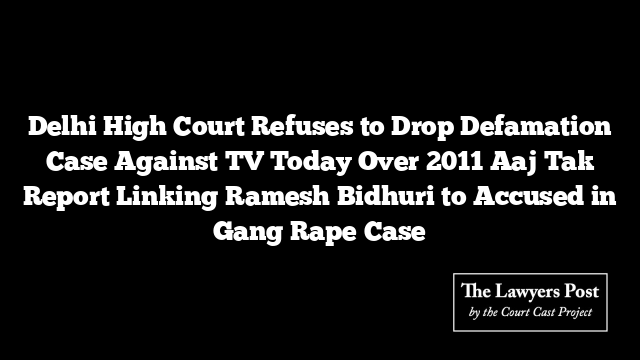In a reminder to the legal fraternity about diligence and fairness, the Delhi High Court has underscored that lawyers and briefing law firms must verify whether the judgments they rely upon are final — or still entangled in review, appeal, or revision proceedings.
The observation came in a case involving Renew Wind Energy (AP2) Pvt. Ltd. and Solar Energy Corporation of India (SECI), where the petitioner’s counsel cited an order of the Central Electricity Regulatory Commission (CERC) that was, at the time, under review. The omission to disclose this fact drew the Court’s disapproval.
Justice Purushaindra Kumar Kaurav noted that citing an order still under legal scrutiny could mislead the Court, stating that such reliance “falls short of the standard of fairness and completeness expected from officers of the Court.” The judge added that instructing counsel or law firms, rather than senior advocates arguing the case, bear the duty to confirm the status of precedents they put forth.
The Court further pointed out another instance of inadequate diligence — a petitioner citing a High Court ruling that was pending appeal before the Supreme Court. Such lapses, the Court said, risk undermining the adjudicatory process built on trust between the Bar and the Bench.
“The justice delivery system functions on mutual trust,” Justice Kaurav wrote, “and any lapse diminishes confidence in the system as a whole.”
The case itself arose from a dispute over an alleged power supply shortfall from a 300 MW wind energy project in Gujarat operated by Renew Wind Energy. SECI had demanded compensation under a Power Purchase Agreement, prompting Renew Wind to seek interim protection under Section 9 of the Arbitration and Conciliation Act, 1996.
While the review petition against the CERC order was later dismissed, the Court clarified that this did not absolve counsel from the duty of disclosure at the time of citation. “At the time of reliance, the petitioner could not have known whether the review would be allowed or rejected,” it said.
Accepting the explanation that the nondisclosure was inadvertent and not deliberate, the Court refrained from imposing consequences but made its expectations clear for the future: verification of legal authorities is a matter of professional responsibility, not discretion.
Ultimately, the Court dismissed the petition on maintainability grounds, ruling that disputes between power producers and transmission licensees fall squarely within the jurisdiction of the CERC to refer for arbitration.





